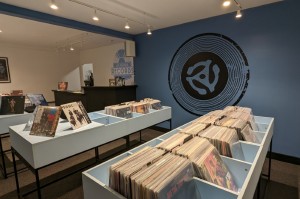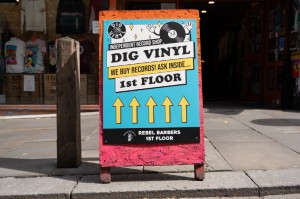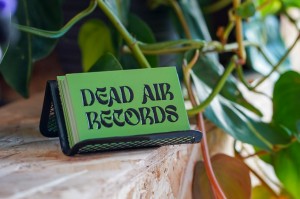“Aladdin, for me, is my first really great artwork” — The Big Interview: Adam Green
Mike Pinnington enjoys a contemplative conversation with US musician Adam Green about whether his new Aladdin film and concert tour is “ill-fated” or “great artwork”, jamming with Macaulay Culkin, and his “miserable” break up with Rough Trade records…
Amid much shuffling and crackling, the voice on the other end of the phone tells me to “hang on a second, I’m gonna go outside”. A number of heavy steps follow, and then a door being pushed open; I’m speaking to Adam Green, sometime member and founder – along with Kimya Dawson – of The Moldy Peaches. Right now, he’s just a handful of dates into the UK leg of a European tour of brand new show Aladdin: which he describes as “a comedy and a satire. It has the same type of tone as my songs, but as a movie”. He’s supported by French anti-folk band, Coming Soon. I ask how it’s going.
“It’s been pretty cool. In Europe we got to show the movie then the concert. For the UK tour, largely I come to people’s towns dressed as Aladdin! My band is dressed like characters from Aladdin, with us playing in front of a back drop.” Curious about the seemingly high level of on-stage narrative, my mind leaping to some weird hybrid panto, where Adam Green is playing opposite Christopher Biggins, I ask what kind of set-list audiences might expect. “I play five or six songs from Aladdin,” explains Green, “and a lot of older songs.” Interestingly, he continues, Aladdin cast member and friend, “Macaulay Culkin has been hanging out, playing Moldy Peaches songs with us. Macaulay is the stand-in Kimya right now! He’s been me before, too.”
All of this is delivered with enthusiasm, both for the project as a whole and apparently for the live element. I wonder nonetheless about whether, now well into his thirties, he still enjoys touring a new album. “I like touring, especially the performing part of it. When I’m on stage, I don’t have to do anything or am expected to do anything other than the show.
“The rest of life can feel complicated, a diversion of my attention to a lot of different areas. When I’m performing I just feel like I’m in the right place at the right moment. Y’know, it doesn’t feel like I should be anywhere else. I don’t wanna get off stage – once I get off stage the reality returns. Certainly tonight I’m gonna play this venue and I’m pretty sure when I get on stage I’ll feel right at home. I never feel more at home than just singing something, y’know.”
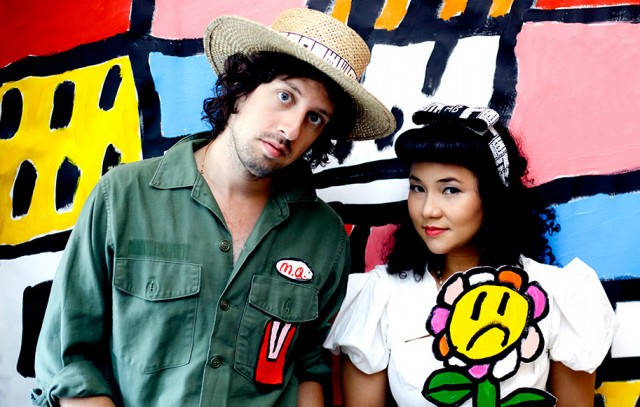
At this point, Green (who somehow, thankfully, hasn’t understood he’s talking to a longtime fan) feels he needs to give some context: “It’s funny, cos, there’s so much information; it’s difficult to explain over the phone in an interview. My Aladdin is an indie-rock singer, about to get dropped from his label, Zintendo records. The princess is a Kardashian – it’s such an ambitious project, I spent four years making it. Me and a group of people built 30 different rooms out of cardboard, 500 papier-mâché props and I scored the movie with my music. It’s a handpainted universe that’s like a real life cartoon.”
For Green, the story of Aladdin is simply a framework for satire. Of course, it’s not a huge leap for his eponymous lead to embody the role of indie-rock star. Nor is it too far a stretch to read Zintendo as Rough Trade, previously his long-time record label. When I put this to him, his amiable tone changes, becoming slightly more contemplative.
“What’s funny is that it kind of tells a real-life story. I remember around the time of the Binki [Shapiro] album, we handed [Rough Trade] that record, saying ‘when are we gonna put this out?’, and they were like, ‘no we’re not putting this out, we don’t wanna put this out’. I was shocked. That was the one that ends my relationship with Rough Trade. I ended up having to go with new labels – it was a very miserable time in my life, I just felt like, ‘why?’”
I suggest that the unexpected parting is clearly still fresh enough to hurt, or sting at least. “When an enormous amount of time and money is spent on something that gets rejected, I definitely found myself in a pretty low place. I think the movie is sort of about that.” Soon, however, Green is back on safe ground. He explains that “eventually, through that whole experience, I ended up meeting my wife, Yasmin, who ended up producing the movie. I wanted to tell people about a real life love experience I’ve had: finding love on Planet Earth. Only in this case, it’s set inside of a video game”.
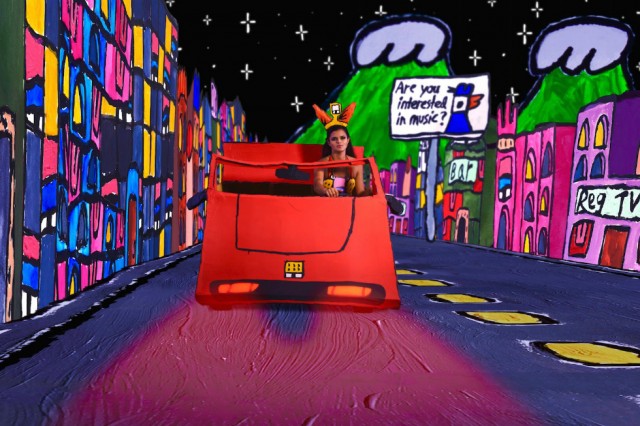
Aladdin does look uncannily like a video game. It also bears more than a passing resemblance to some of his visual artwork (he’s had numerous exhibitions). Musician, artist, director: is there a hierarchy at play between the three disciplines? He’s fairly unequivocal in his response: “There isn’t really a hierarchy to them. I kind’ve actually try to combine them all. I don’t really think of anything without the other – at this point now I think of music as something to perform, but I also think of it as something that should be part of some drawing that I’m making.
“I also feel when I write film scripts, I think of the lines more of lyrics to a song than I do as anything else. That’s probably a distinguishing aspect to the movies that I’m making. The characters don’t really talk in a way that people talk naturalistically.”
There is a connection here, too, between Green’s creative endeavors: “Probably naturalistic is the last thing I’m concerned about in my own artworks, in every way. Everything is more of a fabrication to show an interior landscape, an internal world rather than naturalistic or true to life. I think they’re all bleeding into each other… Film provided me with an opportunity to combine these elements.”
Green says that his movies are like “an inverse” of the Dogme 95 movement (spearheaded by Lars von Trier and Thomas Vinterberg), “where you’re not allowed to have any props, and you’re not allowed to have locations be altered, and all of the sound has to be recorded live, there’s no background music; my movie is the opposite of these rules; the one rule was that nothing’s real, all the sound is overdubbed, cos I wanted it to feel like a foreign film. I want it to feel like another dimension”.
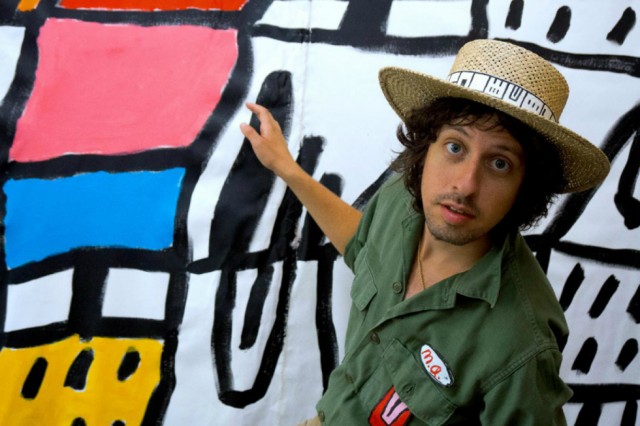
Rather than a specific director, Aladdin, aesthetically at least, was inspired by artist Jean Dubuffet, he says. “[Seeing his work in the Pompidou] it was the first time it made me realize a sculpture could look like a drawing. That real-life cartoon thing became a quality I was seeking.”
Our time is drawing to a close, Green has to sound-check ahead of tonight’s show. I ask him after four years of working on the project, how he feels now the film and soundtrack have been realised. His answer is disarmingly honest: “Aladdin, for me, is my first really great piece of artwork; you just can’t make too many of them in your life.”
Then he laughs in a ‘don’t get me wrong’ kind of way.
“There’s certainly been times in the middle of it I was referring to it as my ‘ill-fated Aladdin project’! But I’ve actually got the chance now to have six months away from it so I can sit there with a room full of people in a movie theatre and laugh with people about it, enjoy it. Which is cool.”
Mike Pinnington
See Adam Green’s Aladdin Concert Tour at the 02 Academy, Liverpool, on Tuesday 24 May 2016 — £16.50, doors 7pm via Club EVOL (click here for tickets)
Tour continues to Manchester, Glasgow, Newcastle, Hull, York, Birmingham and more — see Adam’s website for full tour dates



